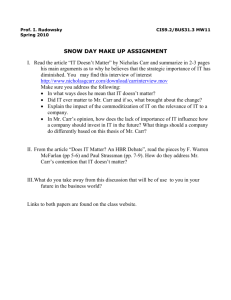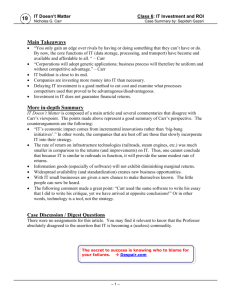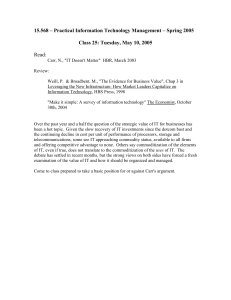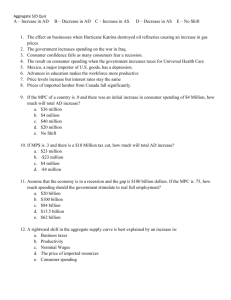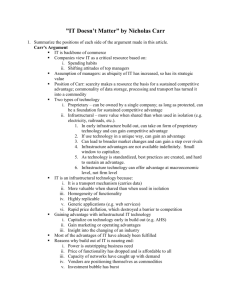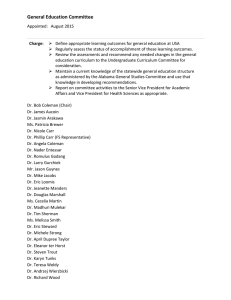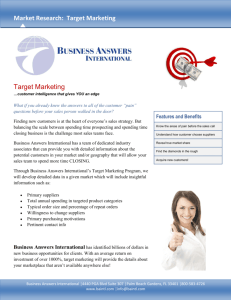Does it matter? An HBR debate
advertisement
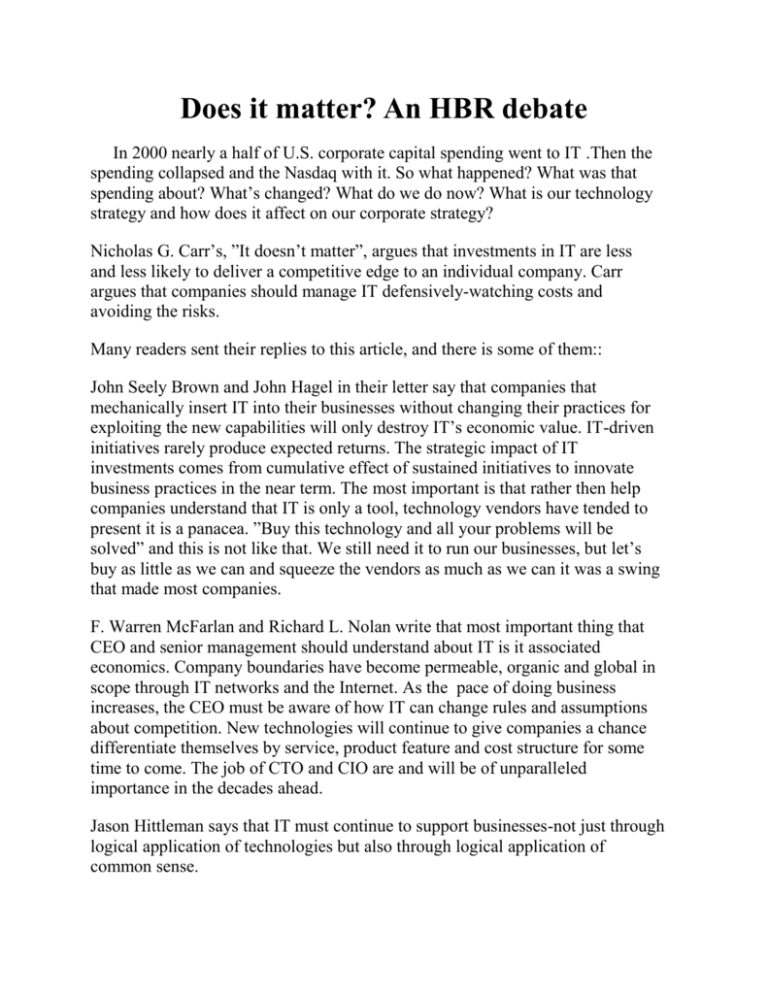
Does it matter? An HBR debate In 2000 nearly a half of U.S. corporate capital spending went to IT .Then the spending collapsed and the Nasdaq with it. So what happened? What was that spending about? What’s changed? What do we do now? What is our technology strategy and how does it affect on our corporate strategy? Nicholas G. Carr’s, ”It doesn’t matter”, argues that investments in IT are less and less likely to deliver a competitive edge to an individual company. Carr argues that companies should manage IT defensively-watching costs and avoiding the risks. Many readers sent their replies to this article, and there is some of them:: John Seely Brown and John Hagel in their letter say that companies that mechanically insert IT into their businesses without changing their practices for exploiting the new capabilities will only destroy IT’s economic value. IT-driven initiatives rarely produce expected returns. The strategic impact of IT investments comes from cumulative effect of sustained initiatives to innovate business practices in the near term. The most important is that rather then help companies understand that IT is only a tool, technology vendors have tended to present it is a panacea. ”Buy this technology and all your problems will be solved” and this is not like that. We still need it to run our businesses, but let’s buy as little as we can and squeeze the vendors as much as we can it was a swing that made most companies. F. Warren McFarlan and Richard L. Nolan write that most important thing that CEO and senior management should understand about IT is it associated economics. Company boundaries have become permeable, organic and global in scope through IT networks and the Internet. As the pace of doing business increases, the CEO must be aware of how IT can change rules and assumptions about competition. New technologies will continue to give companies a chance differentiate themselves by service, product feature and cost structure for some time to come. The job of CTO and CIO are and will be of unparalleled importance in the decades ahead. Jason Hittleman says that IT must continue to support businesses-not just through logical application of technologies but also through logical application of common sense. Paul A. Strassmann writes that after 50 years of cyclical growth, there is not shred of evidence that IT developments have reached a plateau , as did innovations in industrial-age machinery. The dissemination of business best practices means survival today requires speed and innovation- and greater adoption of IT. Moreover of these letters, there are some more that their important points: Now that some of IT mystique has been eliminated, corporate IT has to play by the same rules as everyone else. IT never mattered . What matters are the people who invent technologies and who deploy and use them. There is no consistent correlation between IT spending levels and financial performing. The move of common infrastructure is inevitable. But it does not reduce opportunities for competitive advantage. It increases them. Hardware and software can be intricately intertwined. Sometimes a single piece of outdated software can derail the deployment of important new functionality with real strategic value. To exaggerate somewhat-but only a little- anything is possible with software, if not today, then tomorrow. Carr’s reply for these letters is that information system not involved in managing processes and information are the source of the distinctiveness. He says that just because we continue to see new innovations in IT doesn’t mean that pays to be a pioneer.
